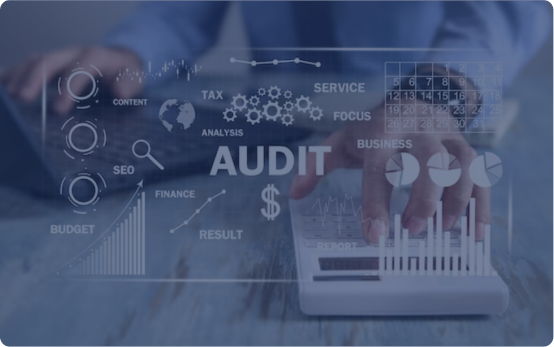
The IRS issues alerts to educate about tax risks, like scams and identity theft, stressing the need for vigilance, authenticity verification, and staying informed to protect finances and tax compliance.



Employers warned to beware of third parties promoting improper Employee Retention Credit claims
-
 WASHINGTON — The Internal Revenue Service today
warned employers to be wary of third parties who
are advising them to claim the Employee Retention
Credit (ERC) when they may not qualify. Some third
parties are taking improper positions related to
taxpayer eligibility for and computation of the
credit.
WASHINGTON — The Internal Revenue Service today
warned employers to be wary of third parties who
are advising them to claim the Employee Retention
Credit (ERC) when they may not qualify. Some third
parties are taking improper positions related to
taxpayer eligibility for and computation of the
credit.
-
 These third parties often charge large upfront
fees or a fee that is contingent on the amount of
the refund and may not inform taxpayers that wage
deductions claimed on the business' federal income
tax return must be reduced by the amount of the
credit.
These third parties often charge large upfront
fees or a fee that is contingent on the amount of
the refund and may not inform taxpayers that wage
deductions claimed on the business' federal income
tax return must be reduced by the amount of the
credit.
-
 If the business filed an income tax return
deducting qualified wages before it filed an
employment tax return claiming the credit, the
business should file an amended income tax return
to correct any overstated wage deduction.
If the business filed an income tax return
deducting qualified wages before it filed an
employment tax return claiming the credit, the
business should file an amended income tax return
to correct any overstated wage deduction.
-
 Businesses are encouraged to be cautious of
advertised schemes and direct solicitations
promising tax savings that are too good to be
true. Taxpayers are always responsible for the
information reported on their tax returns.
Improperly claiming the ERC could result in
taxpayers being required to repay the credit along
with penalties and interest.
Businesses are encouraged to be cautious of
advertised schemes and direct solicitations
promising tax savings that are too good to be
true. Taxpayers are always responsible for the
information reported on their tax returns.
Improperly claiming the ERC could result in
taxpayers being required to repay the credit along
with penalties and interest.

What is the ERC?
The ERC is a refundable tax credit designed for businesses who continued paying employees while shutdown due to the COVID-19 pandemic or had significant declines in gross receipts from March 13, 2020 to December 31, 2021. Eligible taxpayers can claim the ERC on an original or amended employment tax return for a period within those dates.

IRS issues renewed warning on Employee Retention Credit claims; false claims generate compliance risk for people and businesses claiming credit improperly
-
 WASHINGTON — The Internal Revenue Service today
issued a renewed warning urging people to
carefully review the Employee Retention Credit
(ERC) guidelines before trying to claim the credit
as promoters continue pushing ineligible people to
file.
WASHINGTON — The Internal Revenue Service today
issued a renewed warning urging people to
carefully review the Employee Retention Credit
(ERC) guidelines before trying to claim the credit
as promoters continue pushing ineligible people to
file.
-
 The IRS and tax professionals continue to see
third parties aggressively promoting these ERC
schemes on radio and online. These promoters
charge large upfront fees or a fee that is
contingent on the amount of the refund. And the
promoters may not inform taxpayers that wage
deductions claimed on the business' federal income
tax return must be reduced by the amount of the
credit.
The IRS and tax professionals continue to see
third parties aggressively promoting these ERC
schemes on radio and online. These promoters
charge large upfront fees or a fee that is
contingent on the amount of the refund. And the
promoters may not inform taxpayers that wage
deductions claimed on the business' federal income
tax return must be reduced by the amount of the
credit.
-
 "While this is a legitimate credit that has
provided a financial lifeline to millions of
businesses, there continue to be promoters who
aggressively mislead people and businesses into
thinking they can claim these credits," said
Acting IRS Commissioner Doug O'Donnell. "Anyone
who is considering claiming this credit needs to
carefully review the guidelines. If the tax
professional they're using raises questions about
the accuracy of the Employee Retention Credit
claim, people should listen to their advice. The
IRS is actively auditing and conducting criminal
investigations related to these false claims.
People need to think twice before claiming this."
"While this is a legitimate credit that has
provided a financial lifeline to millions of
businesses, there continue to be promoters who
aggressively mislead people and businesses into
thinking they can claim these credits," said
Acting IRS Commissioner Doug O'Donnell. "Anyone
who is considering claiming this credit needs to
carefully review the guidelines. If the tax
professional they're using raises questions about
the accuracy of the Employee Retention Credit
claim, people should listen to their advice. The
IRS is actively auditing and conducting criminal
investigations related to these false claims.
People need to think twice before claiming this."
-
 People and businesses can avoid this scheme, and
by not filing improper claims in the first place.
If the business filed an income tax return
deducting qualified wages before it filed an
employment tax return claiming the credit, the
business should file an amended income tax return
to correct any overstated wage deduction.
People and businesses can avoid this scheme, and
by not filing improper claims in the first place.
If the business filed an income tax return
deducting qualified wages before it filed an
employment tax return claiming the credit, the
business should file an amended income tax return
to correct any overstated wage deduction.
-
 Businesses should be cautious of advertised
schemes and direct solicitations promising tax
savings that are too good to be true. Taxpayers
are always responsible for the information
reported on their tax returns. Improperly claiming
the ERC could result in taxpayers being required
to repay the credit along with penalties and
interest.
Businesses should be cautious of advertised
schemes and direct solicitations promising tax
savings that are too good to be true. Taxpayers
are always responsible for the information
reported on their tax returns. Improperly claiming
the ERC could result in taxpayers being required
to repay the credit along with penalties and
interest.



What is the ERC?
The ERC is a refundable tax credit designed for businesses who continued paying employees while shutdown due to the COVID-19 pandemic or had significant declines in gross receipts from March 13, 2020 to December 31, 2021. Eligible taxpayers can claim the ERC on an original or amended employment tax return for a period within those dates.

IRS alerts businesses, tax-exempt groups of warning signs for misleading Employee Retention scams; simple steps can avoid improperly filing claims
-
 WASHINGTON — As aggressive marketing continues,
the Internal Revenue Service today renewed an
alert for businesses to watch out for tell-tale
signs of misleading claims involving the
Employee Retention Credit.
WASHINGTON — As aggressive marketing continues,
the Internal Revenue Service today renewed an
alert for businesses to watch out for tell-tale
signs of misleading claims involving the
Employee Retention Credit.
-
 The IRS and tax professionals continue to see a
barrage of aggressive broadcast advertising,
direct mail solicitations and online promotions
involving the Employee Retention Credit. While
the credit is real, aggressive promoters are
wildly misrepresenting and exaggerating who can
qualify for the credits.
The IRS and tax professionals continue to see a
barrage of aggressive broadcast advertising,
direct mail solicitations and online promotions
involving the Employee Retention Credit. While
the credit is real, aggressive promoters are
wildly misrepresenting and exaggerating who can
qualify for the credits.
-
 The IRS has stepped up audit and criminal
investigation work involving these claims.
Businesses, tax-exempt organizations and others
considering applying for this credit need to
carefully review the official requirements for
this limited program before applying. Those who
improperly claim the credit face follow-up
action from the IRS.
The IRS has stepped up audit and criminal
investigation work involving these claims.
Businesses, tax-exempt organizations and others
considering applying for this credit need to
carefully review the official requirements for
this limited program before applying. Those who
improperly claim the credit face follow-up
action from the IRS.
-
 The Employee Retention Credit (ERC), also
sometimes called the Employee Retention Tax
Credit or ERTC, is a legitimate tax credit. Many
businesses legitimately apply for the
pandemic-era credit. The IRS has added staff to
handle ERC claims, which are time-consuming to
process because they involve amended tax
returns.
The Employee Retention Credit (ERC), also
sometimes called the Employee Retention Tax
Credit or ERTC, is a legitimate tax credit. Many
businesses legitimately apply for the
pandemic-era credit. The IRS has added staff to
handle ERC claims, which are time-consuming to
process because they involve amended tax
returns.
-
 The IRS has been issuing warnings about
aggressive ERC scams since last year, and it
made the agency's list this year of the
Dirty Dozen tax scams
that people should watch out for.
The IRS has been issuing warnings about
aggressive ERC scams since last year, and it
made the agency's list this year of the
Dirty Dozen tax scams
that people should watch out for.
-
 This is an ongoing priority area in many ways,
and the IRS continues to increase compliance
work involving ERC. The IRS has trained auditors
examining ERC claims posing the greatest risk,
and the IRS Criminal Investigation division is
working to identify fraud and promoters of
fraudulent claims.
This is an ongoing priority area in many ways,
and the IRS continues to increase compliance
work involving ERC. The IRS has trained auditors
examining ERC claims posing the greatest risk,
and the IRS Criminal Investigation division is
working to identify fraud and promoters of
fraudulent claims.
-
 The IRS reminds anyone who improperly claims the
ERC that they must pay it back, possibly with
penalties and interest. A business or tax-exempt
group could find itself in a much worse cash
position if it has to pay back the credit than
if the credit was never claimed in the first
place. So, it's important to avoid getting
scammed.
The IRS reminds anyone who improperly claims the
ERC that they must pay it back, possibly with
penalties and interest. A business or tax-exempt
group could find itself in a much worse cash
position if it has to pay back the credit than
if the credit was never claimed in the first
place. So, it's important to avoid getting
scammed.
-
 When properly claimed, the ERC is a refundable
tax credit designed for businesses that
continued paying employees while shut down due
to the COVID-19 pandemic or that had a
significant decline in gross receipts during the
eligibility periods. The credit is not available
to individuals.
When properly claimed, the ERC is a refundable
tax credit designed for businesses that
continued paying employees while shut down due
to the COVID-19 pandemic or that had a
significant decline in gross receipts during the
eligibility periods. The credit is not available
to individuals.




Warning signs of aggressive ERC marketing

Unsolicited calls or advertisements mentioning an "easy application process.

Statements that the promoter or company can determine ERC eligibility within minutes.

Large upfront fees to claim the credit.

Fees based on a percentage of the refund amount of Employee Retention Credit claimed.

The promoter must verify eligibility before asserting tax claims.

The IRS notes marketers pushing claims with undue confidence, assuring zero risk.
How the promoters lure victims

This can be seen in countless places, including radio, television and online as well as phone calls and text messages.

Promoters may inadequately inform about ERC eligibility, risking tax issues by overlooking Q4 2021 startup restrictions and neglecting crucial wage deduction adjustments.

Some ERC mills are sending out fake letters to taxpayers from the non-existent groups like the "Department of Employee Retention Credit.

In addition, many of these promoters don't tell employers that they can't claim the ERC on wages that were reported as payroll costs if they obtained Paycheck Protection Program loan forgiveness.

How businesses and others can protect themselves
-
 Work with a trusted tax professional.
Eligible employers who need help claiming
the credit should work with a
trusted tax professional; the IRS urges people not to rely on the
advice of those soliciting these credits.
Promoters who are marketing this ultimately
have a vested interest in making money; in
many cases they are not looking out for the
best interests of those applying.
Work with a trusted tax professional.
Eligible employers who need help claiming
the credit should work with a
trusted tax professional; the IRS urges people not to rely on the
advice of those soliciting these credits.
Promoters who are marketing this ultimately
have a vested interest in making money; in
many cases they are not looking out for the
best interests of those applying.
-
 Don't apply unless you believe you are
legitimately qualified for this credit.
Details about the credit are available on
IRS.gov, and again a trusted tax
professional – not someone promoting the
credit – can provide critical professional
advice on the ERC.
Don't apply unless you believe you are
legitimately qualified for this credit.
Details about the credit are available on
IRS.gov, and again a trusted tax
professional – not someone promoting the
credit – can provide critical professional
advice on the ERC.
-
 To report ERC abuse, submit Form 14242,
Report Suspected Abusive Tax Promotions or
Preparers. People should mail or fax a
completed Form 14242, Report Suspected Abusive Tax
Promotions or PreparersPDF, and any supporting materials to the IRS
Lead Development Center in the Office of
Promoter Investigations.
To report ERC abuse, submit Form 14242,
Report Suspected Abusive Tax Promotions or
Preparers. People should mail or fax a
completed Form 14242, Report Suspected Abusive Tax
Promotions or PreparersPDF, and any supporting materials to the IRS
Lead Development Center in the Office of
Promoter Investigations.
Properly claiming the ERC
There are very specific eligibility requirements for claiming the ERC. These are technical areas that require review. They can claim the ERC on an original or amended employment tax return for qualified wages paid between March 13, 2020, and Dec. 31, 2021. However, to be eligible, employers must have:
01
Sustained a full or partial suspension of operations due to orders from an appropriate governmental authority limiting commerce, travel or group meetings because of COVID-19 during 2020 or the first three quarters of 2021,
02
03
Qualified as a recovery startup business for the third or fourth quarters of 2021.
